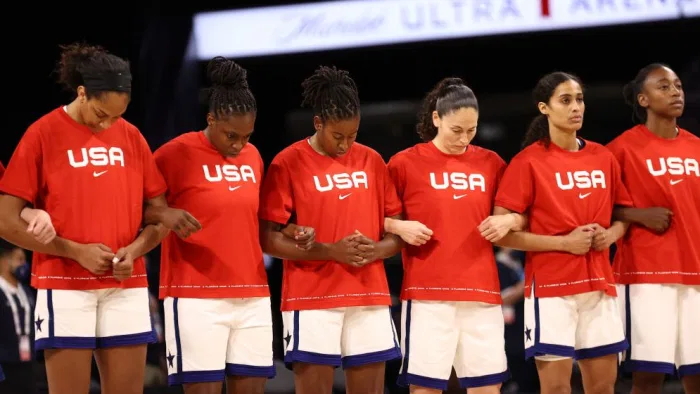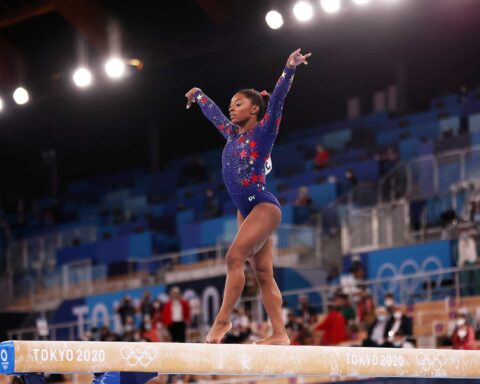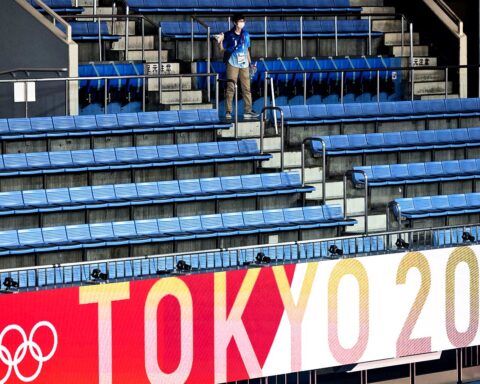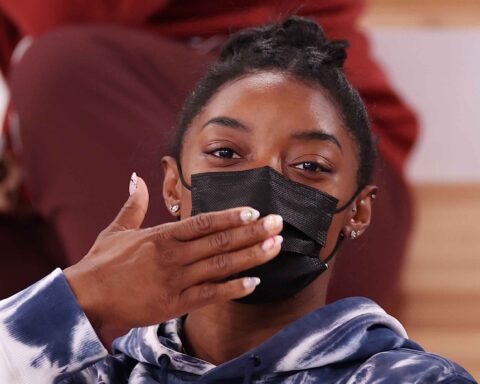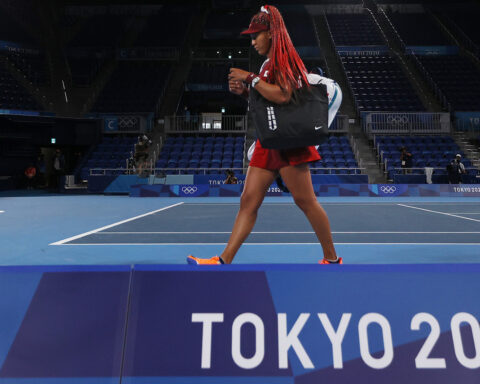Sam Mitchell was entering his first season with the Indiana Pacers in 1992 when USA Basketball assembled the historic Dream Team, the first U.S. team to feature current NBA players. Led by Michael Jordan, Larry Bird, Magic Johnson and Charles Barkley, the Dream Team was touted as the greatest collection of players under the sun, one designed to inspire shock and awe throughout the basketball universe. The Dream Team was also a golden marketing opportunity for the NBA and a high-profile initiative to inspire young players around the world to play the game of basketball.
“At the time, I just thought it was overkill,” Mitchell told me by phone earlier this week. “When they first got the Dream Team together, I understood, because the Europeans were putting in grown men. It was our college players, and it was more so amateur players in Europe. Then all of a sudden, the Europeans started catching up because the Europeans started coming to the United States, playing in the NBA and then those guys start going home, playing for the Olympic team. I understand. They closed their gap.”
More than three decades later, Mitchell, who became a successful NBA head coach and now works as a television and radio analyst, says the time for sending NBA pros to the Olympics has passed.
“What are we accomplishing? What are we saying? That we can’t ever be vulnerable enough to lose?” Mitchell said. He believes – and I agree – that the United States should stop sending NBA players to the Olympics and concentrate on establishing standing national men’s and women’s teams to represent the United States in all international competitions from youth to professional levels.
Hubris and haughtiness are an integral part of the American character and have only gotten worse during the pandemic. Entitlement and privilege have intensified; the Dream Team instinct exemplifies this attitude.
When we don’t get what we want, we throw tantrums. Our candidate doesn’t win and we storm the Capitol; we get passed over for promotion, we blame affirmative action. Our basketball team loses and we send the Marines to obliterate the competition. The Dream Team beat its competition by an average of more than 43 points per game.
I can only imagine how terrifying it must be when entitlement and privilege seem to be slipping away, when head starts and advantages are not enough to ensure continued dominance.
In 1992, there was a canyon-sized gap separating the NBA from the rest of the hemisphere. Today, not so much. After back-to-back losses to Nigeria and Australia, the response from media and fans was predictably filtered through familiar old-school U.S. hubris. Team USA subsequently routed Argentina and defeated Spain convincingly on July 18, prompting critics to say the United States is back to its normal, dominant self.
The men’s team is favored to win the gold medal, but there is neither shock nor awe among teams it will face in Tokyo. The luster from 1992 has dulled considerably. Compare the players on that team with the players we’ll send to Tokyo. Outside of Kevin Durant – a two-time NBA Finals MVP – and Damian Lillard, who has never reached the Finals, none of these players are ultra superstars.
“In this country, we act like there’s nothing that we can’t do,” Mitchell said. “If we’re not the best at it, we’re vulnerable and we act like vulnerability is a bad thing. We’ve got to poke our chests out and we’re going [to] dominate each and every thing.
“It’s not the same marketing,” Mitchell continued. “People are not drawn to it like they used to be when it was Michael and Magic or even with LeBron. But now, OK, are you really going to be fixated on your television to watch this Olympic team play? …
“You don’t need pros to play anymore,” Mitchell said. “I think it would garner just as much interest, if not more. I really have no interest in watching the USA play in the Olympics. I expect them to win. The fun is that because you could have a chance to lose. That what’s makes me want to watch.”
The Games have become an unnecessary strain on professional NBA players. A number of stars, either too busy, too fatigued or too beaten up by the NBA schedule, passed on playing.
Damian Lillard (center) of the USA men’s national team before a game against the Spain men’s national team on July 18.
STEPHEN GOSLING/NBAE VIA GETTY IMAGES
Look at the last 18 months. Last year, the NBA was forced by economics to play in the midst of a pandemic. To pull off the playoffs, NBA and WNBA players were confined to a gilded bubble for months. Then this season they were forced to turn around and play a condensed schedule, resulting in more injuries than ever to star players. Bradley Beal was forced to withdraw from the Olympics because of the coronavirus. Three players who were still participating in the NBA Finals – Jrue Holiday, Khris Middleton and Devin Booker – will head to Tokyo to join Team USA.
Then it’s back to the NBA grind.
USA Basketball should turn Olympic participation in the Games back to young players. Today’s young players are more skilled and savvy – indeed, more professional – than their counterparts in 1992. Let them be a mix of college players, G League players, players overseas, recently retired players. Reserve two or three roster spots for NBA players who want the once-in-a-lifetime Olympic experience.
“Our kids today are not the kids in 1992,” Mitchell said.
In its recent decision, the Supreme Court all but acknowledged that student-athletes participate in the highly commercialized world of intercollegiate athletics and should be able to profit from their names, images and likenesses.
”Look at how these young kids are playing in the NBA Finals. It’s not fazing them,” Mitchell said. “Our amateur basketball, when you look at the G League, you look at college, look at high school, I think our kids are skilled enough now to where they can go out there and represent this country.”
The NBA and USA Basketball had a vision in 1992: The Dream Team would win big and spread the good news about basketball. The team of stars would inspire young people around the world to play the game.
There’s no longer a need to instinctively flex and endeavor to obliterate the competition.
The world has just about caught up and the NBA is stronger for it. Wasn’t that the point?

